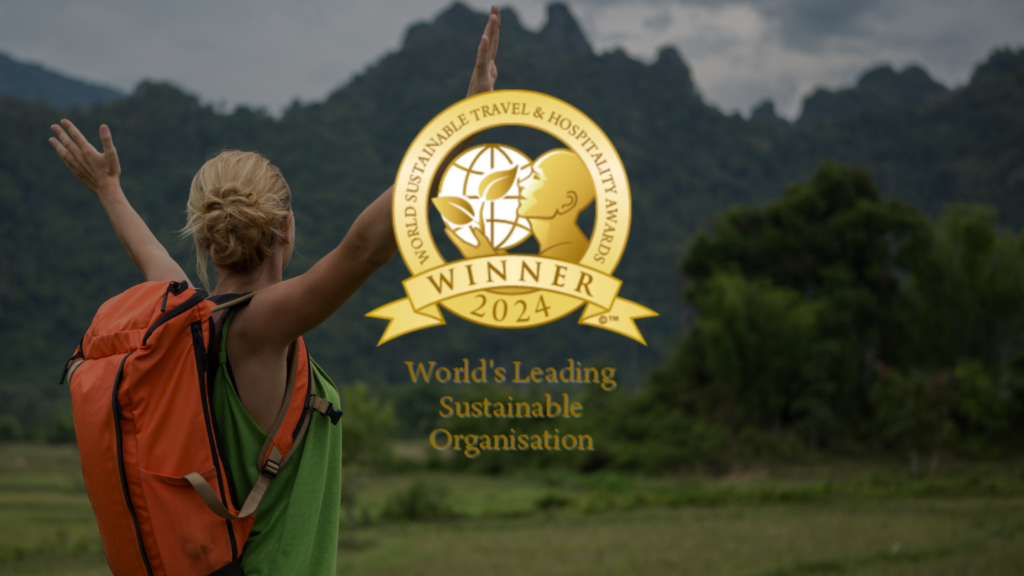In today’s corporate landscape, companies are increasingly adopting climate and nature positive goals to ensure that their business activities reduce environmental harm and contribute to the restoration and preservation of ecosystems. Achieving such goals requires combining strategic planning, emission reduction, and ecosystem restoration. Since our founding, Green Initiative has been helping businesses across various sectors work toward climate positive, carbon neutral, and carbon measured certifications. These certifications enhance organizations’ environmental responsibility and strengthen their market positioning in an era when sustainability is key. What Does It Mean to Be Climate Positive? A climate positive company goes beyond net-zero emissions by actively removing more carbon dioxide from the atmosphere than it emits. This involves efforts such as reducing operational emissions, switching to renewable energy, and supporting nature-based solutions like reforestation and habitat restoration. Achieving climate positive status requires companies to go beyond simply offsetting their carbon footprint. They must engage in activities that directly benefit the environment, ensuring a net positive impact on ecosystems and biodiversity. Certification Pathways: Climate Positive, Carbon Neutral, and Carbon Measured The Green Initiative certification programs provide structured pathways for businesses to reduce their environmental impact and work toward positive outcomes for both the climate and nature: Why Climate Positive Goals Matter? Climate and nature positive goals ensure businesses contribute positively to the planet rather than simply minimizing harm. These goals align with global climate action efforts, such as the Paris Agreement, and support biodiversity preservation under the Convention on Biological Diversity. For businesses, these certifications provide reputational advantages, foster customer loyalty, and attract investment from stakeholders who value sustainability. Companies that achieve climate positive status also position themselves as leaders in the transition to a low-carbon economy. Examples of Companies Setting Climate Positive Goals Here are some examples of businesses that have successfully integrated climate and nature positive goals into their operations through partnerships with Green Initiative: 1. WorldXchange: Pioneering Climate Positive Leadership in Currency Exchange WorldXchange, the first Climate Positive Certified currency exchange company, has set new standards in the financial sector by reducing its carbon footprint by 16% between 2021 and 2023. Furthermore, WorldXchange has gone beyond emissions reductions by planting over 300 trees in Madre de Dios, Peru, and is committed to planting more than 15,000 trees, reaching Forest Friends Accelerator certified partner status. Their efforts, which contribute to carbon sequestration and global climate awareness, position WorldXchange as a forward-thinking leader in integrating sustainability into the financial services sector. 2. Estância Mimosa Ecoturismo: A Leader in Ecotourism and Conservation Located in the heart of Brazil’s Pantanal region, Estância Mimosa Ecoturismo has adopted climate and nature-positive goals to protect the unique ecosystems surrounding its operations. The company has actively reduced its carbon footprint by reforestation projects, sustainable tourism practices, and biodiversity preservation efforts while promoting responsible ecotourism. Their ongoing conservation efforts help offset emissions and contribute to the long-term health of local ecosystems, making them a model for sustainable tourism. 3. Bio-Amayu – AJE Group: Combining Business Growth with Conservation Bio-Amayu, part of the AJE Group, focuses on producing sustainable beverages while protecting the ecosystems in the Amazon Rainforest. By using responsibly sourced ingredients and supporting reforestation projects, Bio-Amayu has made strides toward achieving climate positive goals. In collaboration with Green Initiative, the company is dedicated to reducing its carbon footprint while also investing in the regeneration of Amazonian forests. Their efforts contribute significantly to carbon sequestration and biodiversity protection, exemplifying how businesses can balance economic growth with ecological preservation. 4. Inkaterra Hotels: Regenerative Tourism at Its Best A pioneer in sustainable luxury tourism, Inkaterra Hotels is a shining example of how businesses can align luxury with environmental responsibility. With operations located in some of Peru’s most biodiverse areas, Inkaterra is deeply committed to environmental conservation, scientific research, and the empowerment of local communities. By achieving climate positive certification, Inkaterra supports reforestation and biodiversity conservation projects in the Peruvian Amazon and Andes regions. These efforts are aimed at both offsetting emissions from their hotel operations and contributing to the long-term preservation of Peru’s natural heritage. 5. Kuoda Travel: Promoting Responsible and Sustainable Travel Kuoda Travel, a leading luxury travel company in Peru, has embraced climate positive goals by offering sustainable travel experiences that minimize environmental impact. By partnering with Green Initiative, Kuoda ensures its carbon neutral operations and actively supports conservation efforts through nature-based solutions. Their commitment to reducing the carbon footprint of travel while supporting local conservation projects makes them a leader in the responsible travel sector, ensuring that tourism benefits both people and the planet. How Businesses Can Set and Achieve Climate Positive Goals? For companies aspiring to be climate positive, the Green Initiative certification process provides a roadmap: The Business Case for Climate Positive Goals Businesses that achieve climate positive certification contribute to global climate action and gain a competitive advantage. These companies are well-positioned to adapt to future regulatory changes, attract eco-conscious consumers, and foster greater brand loyalty. Additionally, companies that invest in ecosystem restoration and biodiversity conservation create long-term value for the planet, ensuring that it remains resilient to environmental challenges. Conclusion: Leading the Way Toward a Climate Positive Future The path to becoming climate positive is both an environmental and business imperative. By pursuing certifications through Green Initiative, companies like WorldXchange, Estância Mimosa Ecoturismo, Bio-Amayu – AJE Group, Inkaterra Hotels, and Kuoda Travel are leading the charge in creating a sustainable future. These companies demonstrate that integrating climate and nature positive goals is achievable and essential for long-term business success. By taking proactive steps to reduce emissions and restore ecosystems, businesses can ensure they contribute positively to the environment while benefiting from the growing market demand for sustainability. Now is the time for companies to set ambitious goals and take meaningful action toward building a more resilient, sustainable world. Contact us for expert advice on implementing climate and nature positive strategies in your business.




